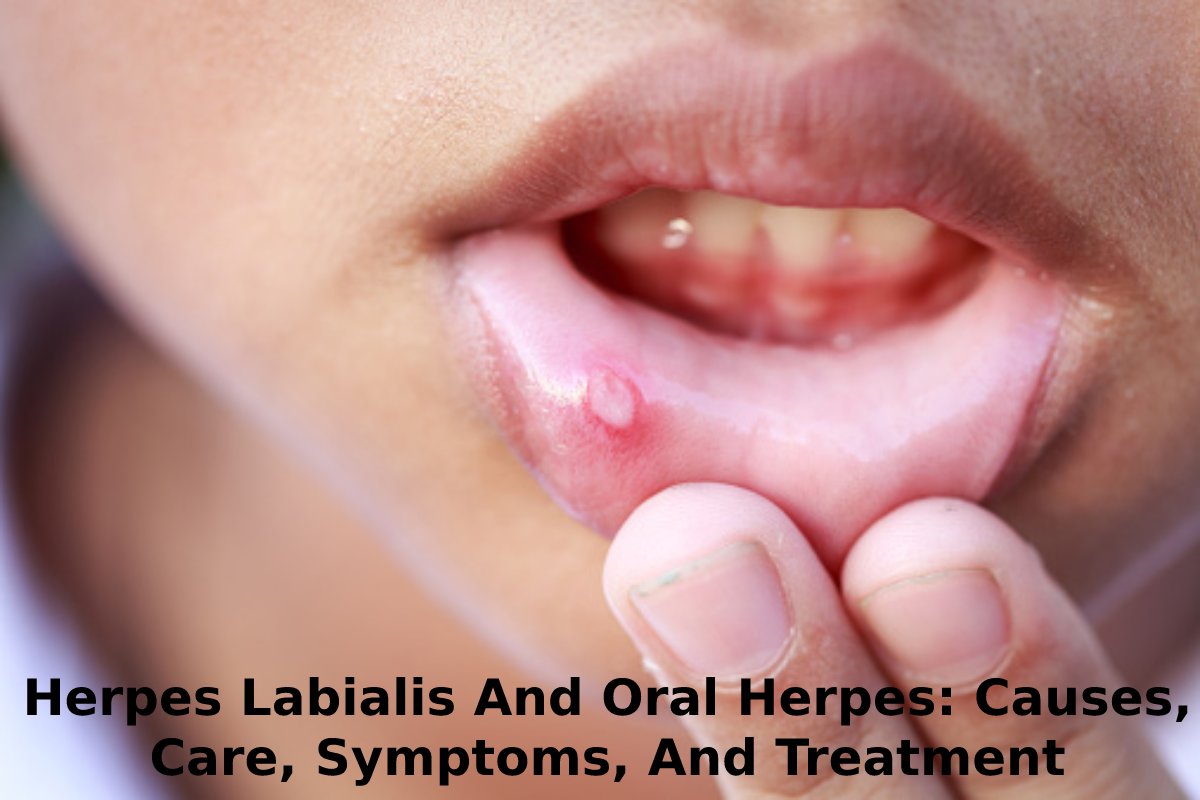Herpes Labialis And Oral Herpes: Causes, Care, Symptoms, And Treatment – Herpes labialis is a condition suffered by many people worldwide (90% of the world population), presenting with an unpleasant swelling and redness on one or both lips of the mouth. This problem is more common than many imagine, and we can even suffer from it, although we do not know it yet
The following questions arise from suffering the symptoms of cold sores or the fear of contagion: What are cold sores? Why do people suffer from this disease? How is it treated, and how can infection be avoided? In this article, we will cover this topic revealing all these questions.
Table of Contents
What Is Labial Herpes?
Emotionless sores, also known as herpes simplex, are viral infections caused by the herpes simplex virus HSV-1. It is highly contagious upon contact by saliva or directly touching the oral lesion.
The infection becomes visible when presented in ulcers, painful blisters in the mouth (in some cases on the gums). Then these blisters break, and scabs begin to form at the site of the injury.
Why Do Cold Sores Come Out?
Although it is closely related to HSV-2 genital herpes, this does not mean that everyone with herpes simplex has contracted it through sexual contact. The HSV-1 virus can spread in various ways without the need for a sexual encounter as an argument. Some of the common forms of contagion are:
- Kisses on the mouth (salivary transmission)
- Use personal items (glasses, plates, lipstick, towels, cutlery, razors, etc.)
- Touching the infected area and subsequently not disinfecting the hands
Parents are responsible for inadvertently transmitting this virus to their children because it can send before symptoms are even present. Even under five years of age, infants are prone to cold sore symptoms and should not be confused with Thrush.
Peoples with a weak immune scheme are more likely to regularly present the symptoms of herpes simplex or even have a higher risk of suffering complications from the virus. Among those most likely to suffer from it are those who have contracted HIV, those undergoing chemotherapy,
What Are The Symptoms Of Cold Sores?
It is essential to classify the symptoms of cold sores to counteract their unsightly and painful effects.
It is vital to letter that most of those infected with the HSV-1 virus are asymptomatic and only discover that they are infected when the painful blisters appear for the first time. Let’s see some manifestations of the virus:
- Cold sores, blisters, or ulcers in the oral area (mainly on the lips)
- Itching, burning, or prickling sensation on the affected lip
- Throat pain
- Swelling of the lymph nodes
- Fever
- Muscle and headache pain
- sore gums
The symptoms of the infection can vary from person to person and do not necessarily all appear together. Second appearances of cold sore symptoms are usually less intense than the first.
In addition to the inconvenience it causes us when herpes manifests, it is not aesthetically pleasing.
Factors That Activate Cold Sores
Herpes labialis can remain caused by external conditions that favor this appearance at any time of life. Among them, we have:
- Hormonal changes
- Constant sun exposure and hot flashes
- Fatigue, anxiety, or stress
- cold lip dryness
How To Cure Cold Sores?
Inappropriately, there is no cure for the herpes simplex virus. The symptoms have appeared. Upon overcoming the cold sore, it only falls into a state of inactivity that can last for years until it. Longer eliminated from our bodies.
Cold sores usually last 1 to 2 weeks without medicinal assistance. However, the symptoms of the infection attack when it becomes visible in the lip area by applying drug treatments that can mitigate the symptoms and shorten their duration to become inactive again.
Herpes Labialis And Oral Herpes
Herpes Labialis And Oral Herpes – The drugs most prescribed for an episode of a cold sore are Acyclovir, Valacyclovir, Penciclovir, Zovirax, Soothelip, and Famciclovir. These can reduce the discomfort caused by herpes and shorten its duration. These will be most effective if consumed at the onset of symptoms.
The aforementioned antiviral drugs are required to attack herpes in more aggressive cases. On the other hand, it shared to use topical antiviral ointments or creams that help reduce inflammation and reduce paresthesia. This type of treatment will serve to appease the symptoms and reduce their time.
If you have the HSV-1 virus, but it is inactive, you can use lip balms to keep them well hydrated and thus prevent the activation of cold sores.
How To Prevent The Spread Of Herpes Labialis?
Although many people have the HSV-1 virus in an inactive form, it is possible to prevent the infection and spread it. Herpes labialis is contagious in its active phase when the first symptoms of the disease begin to appear, and it is at this point that it will be necessary to resort to strict hygiene standards to prevent contagion:
The primary measure is to avoid physical contact (skin to skin) of presenting a picture of herpes simplex. It that the blisters present in the mouth secrete highly contagious fluid.
Another measure taken is to maximize the use of personal objects and not share them. The use of towels, cutlery, razors, lipsticks, etc., must be exclusive to the person who uses them. It will prevent contagion from using these utensils by second people infected.
Handwashing is vital to maintain good hygiene and avoid the contagion of cold sores, either from those infected by the virus or those who avoid it.

